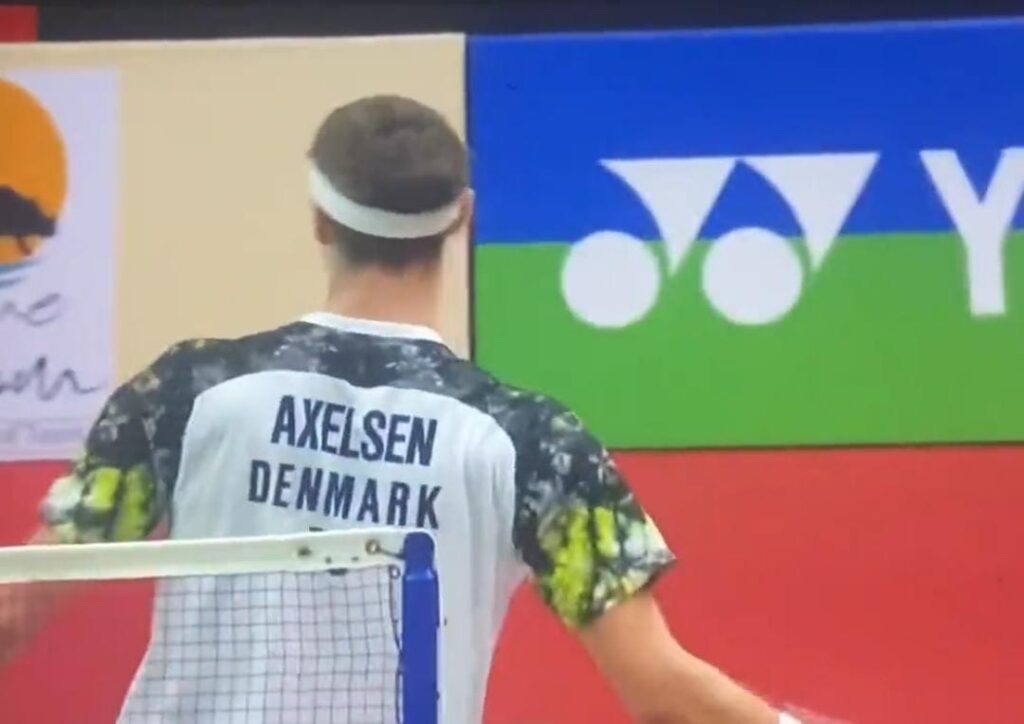Atreyo Mukhopadhyay
There are many who play badminton. There is only one victor. His name is Viktor Axelsen, the undisputed king of the contemporary game, one of the all-time greats if not the one. Carrying the rich legacy of Denmark’s badminton to new heights, the 29-year-old lost in the India Open final, but left no one with a doubt who the best is. Even the winner confessed after the final he did not think he would win.
The Super 750 event in New Delhi could have been another feather in an illustrious cap which has two world championships and an Olympic crown. That his two world championship victories came in 2017 and 2022 shows his durability and ability to be on the top of the world over a substantial period of time. Axelsen winning is not the headline, him losing is.
In the final against Thailand’s World No 8 Kunlavut Viditsarn on Sunday, Axelsen was a tad below himself. He lost the first game 20-22, won the second 21-10 and was outplayed 12-21 in the third. The attacking intent was there, Axelsen was looking to hit winners but Viditsarn returned everything. It was not the Dane’s day. In the first game at 20-20, his opponent was lucky, his shot falling unkindly for Axelsen after hitting the net cord. He had come back from 12-16 to lead 18-16 in that game.
“Overall, it wasn’t my best day. I congratulate Kunlavut. He was the better player and deserved to win. My attack and presence on court wasn’t the best today. I was a bit unlucky as well. There was this point where his return hit the net and fell in my side of the court. That gave him the set point. Winning the first set might have made things different. But that’s how it goes sometimes. I will think about how I can do better,” Axelsen said.
Not visibly upset with the setback, he was trying to be realistic. “You have to take into account that there are tough competitors out there who also want to win all the time. Even though I have done well in the finals for a few years, you cannot expect me to keep winning and winning and winning. That’s not how it works. I try to do my best all the time but today was not my day, not my time. It was Kunlavut’s day.”
His opponent’s reaction after winning the title summed up what the rest of the badminton world thinks of Axelsen. “Honestly, I did not expect to win this match. It was only after I took to the court and got a few points that I started thinking that I may have a chance. After that, it just happened. My strategy worked,” said Viditsarn. A day ago, after losing in the semi-finals, Indonesian World No 4 Jonatan Christie had said Axelsen is the best he has come across.
Axelsen enthralled spectators in New Delhi. At six-foot-four, he towers above most of his opponents physically. Game-wise too, he is well ahead. Coming off a triumph in Malaysia last week in the BWF season-opening Super 1000 event, he was slow off the blocks in India. He was clearly preserving himself for the weekend business. That he won the first two rounds against quality players despite playing to about 60% of what he is capable of, suggested he is special.
In the first two rounds, he hardly played any attacking stroke. It was mostly safety mode, returning the shuttle and keeping it in play without any attempt to force the pace. He was waiting for his opponents to commit errors. He said after the first two matches that he was fatigued after winning five matches in Malaysia the week before. It was very evident. He was bent on not exerting himself. And he was still winning. That takes some doing!
In the heavily packed calendar of the Badminton World Federation, players are left with no other choice. They cannot go full tilt in every outing. In Malaysia and India, Axelsen played 10 matches in 14 days, travelled through different time zones and climates. More or less, this is what he has been and will be doing. Despite this hectic schedule, his success rate is stunning. Last year, he won six BWF titles including the World Tour Finals, apart from the world championship.
“I try to rest and prepare in the best way possible. I try to do my best everyday and try to keep my body in good shape. But it’s not easy, with the travels in between tournaments. It’s really, really tough. You cannot expect a player to perform week after week. That’s how it is. There are so many tournaments. Health or physical condition is something that every individual player has to take care of,” explained the father of two.
But then, Axelsen has won much more than others despite this physically taxing and mentally draining schedule. And that ensures his place in the front row in the pantheon of world badminton. About a thousand that turned up at the Indira Gandhi Stadium on the last two days will understand what we are trying to say. He lost yes, but left an indelible mark on those who saw him in action. It was a lifetime experience to watch Axelsen go about his task, the anti-climactic final notwithstanding.




